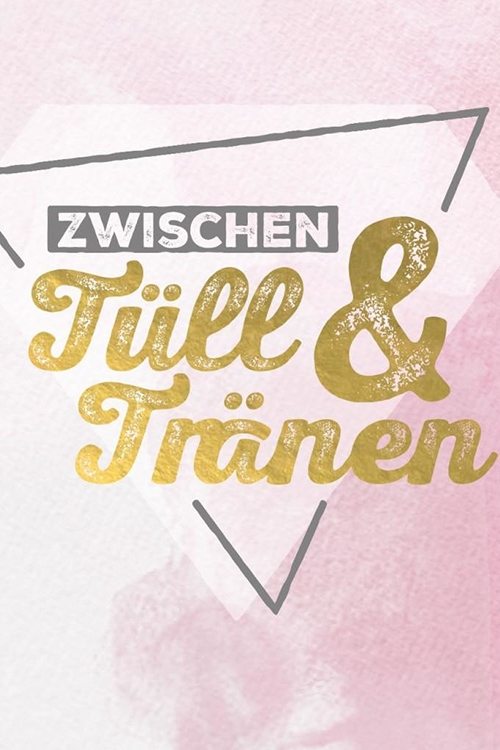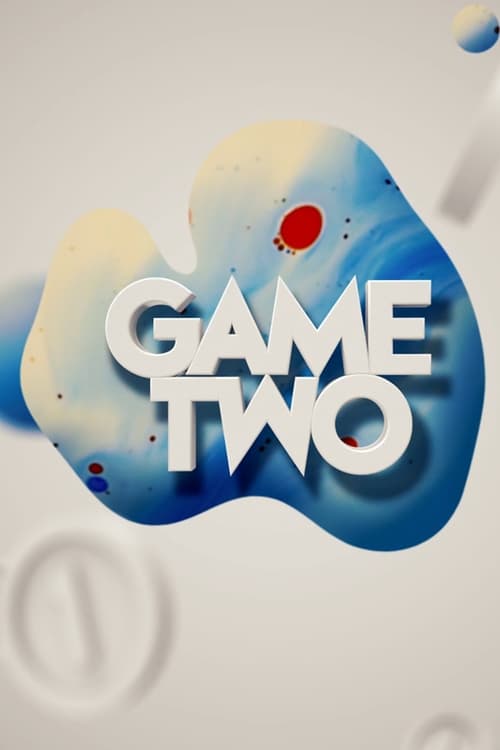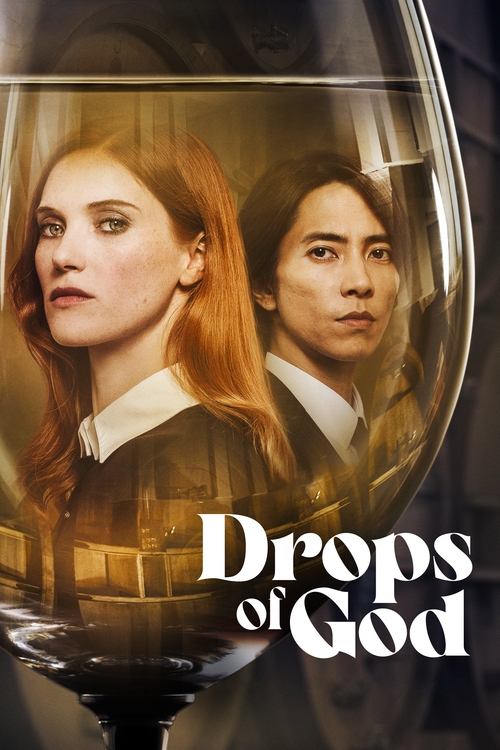
Ask Your Own Question
What is the plot?
In Episode 4 of "Thema," the episode opens with a tense atmosphere as the main character, Lena, is seen pacing in her dimly lit apartment. She is visibly anxious, her fingers tapping nervously against her thigh. The camera zooms in on her face, capturing the worry etched in her features as she contemplates the recent events that have unfolded in her life. The scene transitions to a flashback where Lena recalls a heated argument with her estranged father, revealing the deep-seated issues that have plagued their relationship.
The narrative shifts back to the present as Lena receives a mysterious phone call. The caller, a voice she does not recognize, warns her about a looming threat connected to her past. The urgency in the voice sends a shiver down her spine, and she quickly hangs up, her heart racing. Determined to uncover the truth, Lena decides to visit her childhood home, a place filled with memories both cherished and painful.
As Lena arrives at her childhood home, the camera captures the overgrown garden and peeling paint, symbolizing the neglect of her past. She hesitates at the front door, her hand trembling as she reaches for the doorknob. Once inside, the air is thick with dust and nostalgia. She explores the rooms, each one triggering memories that evoke a mix of sadness and anger. In her old bedroom, she discovers a hidden box filled with letters and photographs that reveal secrets about her family that she never knew.
The scene transitions to a local café where Lena meets her childhood friend, Mark. Their conversation is filled with tension as Mark expresses concern for Lena's well-being. He urges her to let go of the past, but Lena is resolute, driven by a need for closure. As they talk, Mark reveals that he has been investigating the mysterious phone call and has uncovered information about a figure from Lena's past who may be connected to the threat.
The plot thickens when Lena receives another call, this time from a private investigator named Sarah. Sarah informs Lena that she has found evidence linking her father to a series of criminal activities. Lena's emotions swirl as she grapples with the betrayal of her father, whom she had longed to reconnect with. Fueled by a mix of anger and determination, Lena decides to confront her father, setting the stage for a pivotal confrontation.
The scene shifts to a dimly lit bar where Lena meets her father, Richard. The atmosphere is charged with tension as they sit across from each other, the weight of unspoken words hanging in the air. Richard appears older and more worn than Lena remembers, his eyes reflecting a lifetime of regret. As they engage in a heated discussion, Lena demands answers about the secrets he has kept from her. Richard, defensive at first, eventually breaks down and reveals the truth about his past, including the choices that led to their estrangement.
Just as Lena begins to process this revelation, the bar is suddenly interrupted by a group of menacing figures entering the establishment. The tension escalates as the men approach Lena and Richard, their intentions unclear. A confrontation ensues, and Lena instinctively pushes her father out of harm's way. A fight breaks out, with Lena using her surroundings to defend herself and her father. The scene is chaotic, filled with shouts and the sound of breaking glass as Lena fights to protect her father, revealing her fierce determination and resilience.
After the confrontation, Lena and Richard escape the bar, breathless and shaken. They find refuge in a nearby alley, where they share a moment of vulnerability. Richard expresses his remorse for the choices he made, and Lena, still grappling with her emotions, struggles to forgive him. The scene captures the complexity of their relationship, highlighting the pain and longing for connection.
The episode concludes with Lena standing alone in her apartment, reflecting on the day's events. The camera lingers on her face, capturing a mix of resolve and uncertainty as she contemplates her next steps. The final shot reveals her looking at the box of letters and photographs, symbolizing her commitment to uncovering the truth about her past, no matter the cost.
What is the ending?
In the ending of "Thema," Season 1, Episode 4, the main characters face the consequences of their choices. Tensions reach a peak as unresolved conflicts come to a head. The episode concludes with a dramatic confrontation that leaves the characters at a crossroads, forcing them to confront their past decisions and the impact on their relationships.
As the episode unfolds, we begin in a dimly lit room where the atmosphere is thick with tension. The camera pans slowly, capturing the anxious expressions of the characters gathered for a crucial meeting. Each character is visibly on edge, their body language revealing their internal struggles. The protagonist, Alex, stands at the forefront, his brow furrowed in determination but also in fear of what is to come. He knows that the decisions made in this room could alter the course of their lives.
Scene breaks to a flashback, where we see Alex reflecting on his past mistakes. The colors are muted, and the sound of distant echoes fills the air, symbolizing his regret. He recalls moments of betrayal and trust that have led to this pivotal moment. The flashback serves to deepen our understanding of his motivations, revealing a man torn between loyalty and the desire for redemption.
Returning to the present, the meeting escalates as accusations fly. Sarah, another key character, stands up, her voice trembling with emotion. She confronts Alex about his choices, her eyes glistening with unshed tears. The camera captures the rawness of her vulnerability, emphasizing the weight of their shared history. Alex tries to defend himself, but the words seem to falter, revealing his internal conflict and guilt.
The scene shifts to a heated argument between two other characters, Mark and Lisa. Their voices rise, filled with frustration and anger. The tension in the room is palpable, and the camera zooms in on their faces, showcasing the pain and betrayal etched in their expressions. Mark feels betrayed by Lisa's actions, while Lisa struggles to justify her decisions. This confrontation highlights the fractures in their relationships, underscoring the theme of trust and its fragility.
As the climax approaches, the characters are forced to make choices that will define their futures. Alex, feeling the weight of responsibility, steps forward to take accountability for his actions. His voice is steady, but the fear in his eyes betrays his uncertainty. He acknowledges the hurt he has caused and expresses a desire to make amends. This moment of vulnerability resonates with the others, creating a brief pause in the chaos.
However, the resolution is short-lived as external circumstances intrude. A loud crash interrupts the meeting, and the characters are jolted back to reality. The camera shifts to the door, where a figure stands silhouetted against the light, symbolizing the looming threat that has been present throughout the episode. The characters exchange worried glances, realizing that their personal conflicts may have to take a backseat to a greater danger.
In the final moments, the characters are left at a crossroads. They must decide whether to confront their past together or allow the external threat to tear them apart. The episode ends on a cliffhanger, with the characters standing in a tense silence, their fates uncertain. The screen fades to black, leaving viewers with a sense of anticipation and unresolved tension.
In summary, the ending of "Thema," Season 1, Episode 4, encapsulates the characters' struggles with their past decisions and the impact on their relationships. Each character is left facing the consequences of their actions, with their futures hanging in the balance as they confront both internal and external conflicts.
Is there a post-credit scene?
In "Episode 4" of "Thema," there is indeed a post-credit scene that adds an intriguing layer to the episode's narrative.
As the credits roll, the screen fades to black before transitioning to a dimly lit room filled with shadows. The atmosphere is thick with tension, and the faint sound of a clock ticking can be heard in the background. The camera slowly pans to reveal a figure sitting at a desk, their face obscured by the low light.
The figure is seen scribbling notes frantically, their hands trembling slightly, suggesting a mix of anxiety and urgency. A close-up shot reveals a series of photographs pinned to a corkboard behind them, each depicting key characters from the series, connected by red string that crisscrosses chaotically. This visual representation hints at a deeper conspiracy or connection between the characters that has yet to be fully explored.
Suddenly, the figure pauses, looking up as if sensing they are being watched. The tension escalates as the camera zooms in on their eyes, which are filled with a mix of determination and fear. They whisper a name, barely audible, but it carries a weight of significance that resonates with the events of the episode.
The scene cuts to black again, leaving viewers with a lingering sense of mystery and anticipation for what is to come in future episodes. This post-credit moment effectively teases the unfolding drama and deepens the intrigue surrounding the overarching plot, compelling the audience to ponder the implications of the figure's actions and the connections between the characters.
What role does the supporting character play in the events of Episode 4?
The supporting character in Episode 4 serves as a catalyst for the main characters' actions. Their insights and advice push the protagonists to confront their fears and insecurities, ultimately leading to critical decisions that shape the course of the episode.
What significant event occurs between the main characters in Episode 4 that changes their relationship dynamics?
In Episode 4, a pivotal confrontation occurs between the two main characters, where long-held secrets are revealed. This moment is charged with tension as both characters grapple with their past decisions, leading to a deep emotional rift that alters their relationship forever.
How does the setting influence the events of Episode 4?
The setting in Episode 4 is crucial as it takes place during a stormy night, which mirrors the turmoil within the characters. The dark, rain-soaked streets create an atmosphere of isolation and urgency, amplifying the emotional stakes of the characters' interactions.
What internal conflict does the protagonist face in Episode 4?
The protagonist experiences a profound internal conflict in Episode 4, torn between loyalty to a friend and the desire to pursue their own ambitions. This struggle is depicted through their restless thoughts and the weight of their decisions, showcasing their vulnerability and the pressure of expectations.
Which character undergoes a transformation in Episode 4, and what triggers this change?
In Episode 4, a secondary character undergoes a significant transformation triggered by a moment of betrayal. This event forces them to reevaluate their values and relationships, leading to a newfound sense of independence and strength that alters their role in the group.
Is this family friendly?
In "Episode 4" of "Thema," there are several scenes and themes that may be considered potentially objectionable or upsetting for children or sensitive viewers.
-
Emotional Conflict: The episode features intense emotional confrontations between family members, which may be distressing for younger viewers. The characters express feelings of betrayal and anger, leading to heightened tensions.
-
Themes of Loss: There are references to loss and grief that could resonate deeply with sensitive audiences, as characters grapple with their past and the impact of their decisions.
-
Depictions of Struggle: Some scenes depict characters facing significant personal struggles, including financial difficulties and relationship breakdowns, which may be heavy for younger viewers to process.
-
Mature Discussions: The dialogue includes mature themes related to family dynamics and personal choices that may not be suitable for all children, as they touch on complex emotional issues.
-
Visual Tension: Certain scenes may contain visual tension, such as arguments or moments of despair, which could be unsettling for sensitive viewers.
Overall, while the episode does not contain explicit content, the emotional weight and themes may require parental guidance for younger audiences.
















